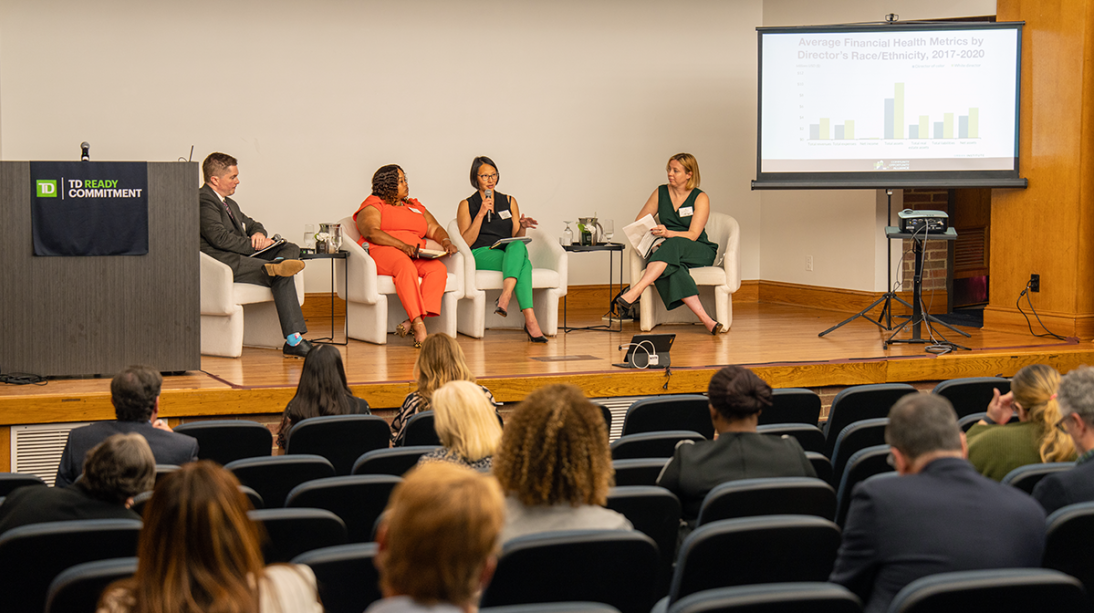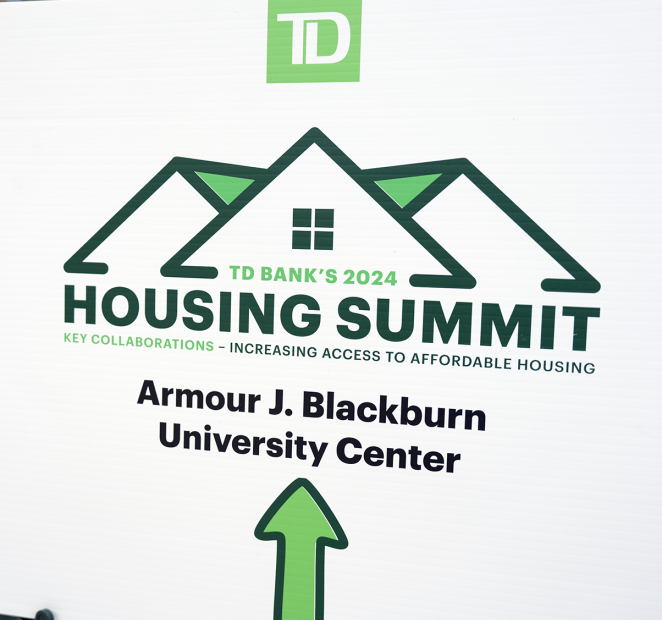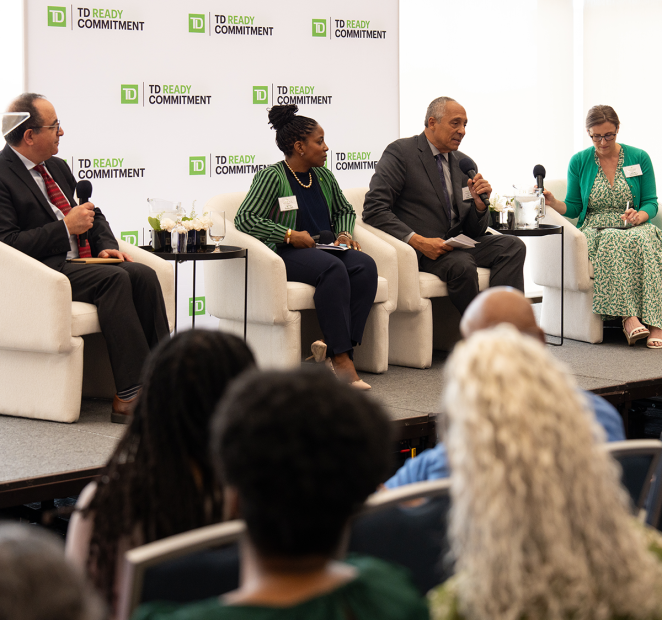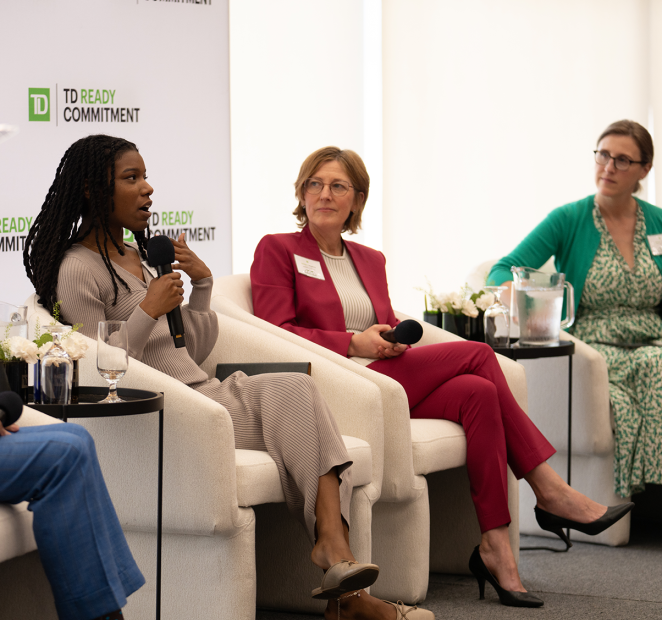TD Bank is setting out to lead efforts to create more and preserve existing affordable housing options for purchase and to rent, focusing mostly on the communities in its Maine to Florida footprint. On April 30, 2024, TD Bank held its first-ever Housing Summit at Howard University in Washington, D.C.
The summit brought together affordable housing NGOs (non-governmental organization), economists, lenders, academics, and other affordable housing professionals to discuss today's affordable housing crisis and common needs, challenges, and viable solutions focusing especially on ways they can work together.
"During the inaugural TD Housing Summit, Howard University faculty and researchers, nonprofit housing developers, intermediaries, policy organizations and TD leaders shared ideas, solutions and ways we can work together to make real progress toward the day when everyone will have a safe, affordable place to call home," said Paige Carlson-Heim, Head of Social Impact, TD Bank.
Watch the video below for a recap of the event.
Throughout the day, TD Bank hosted multiple panel discussions and networking sessions focused on bringing about real change for millions of Americans who are struggling to cover the rent or mortgage for their home. Together, conference participants began crafting plans to dismantle the barriers and to find solutions to the challenges of affordability facing underserved populations in the U.S.
Having a place to live is one of the best ways to bring “dignity, stability, and opportunity” and “have a lasting impact on the lives of countless individuals and families,” said Dr. Kimberly L. Jones, Associate Provost for Faculty Affairs and Professor, Department of Civil and Environmental Engineering at Howard University.
Lack of affordable rents
While housing prices have skyrocketed, wages have not kept up, according to Jennifer Hawkins, President & CEO of One Neighborhood Housing. That means many low-income individuals struggle to pay rent and “can’t afford [to buy] a house” she said.
Construction of new homes and affordable rental units has slowed significantly over the last 20 years. This has created “a simple supply and demand problem,” that can be solved by different sectors of the housing industry working together, Jennifer said.
The affordable rental crisis is particularly severe in cities throughout the U.S., such as New York City and Philadelphia.
"Seventy-five percent of residential land in the U.S. is zoned for single-family homes, and this has been in place since 1910. The challenge is supply for creating density [multi-family units] and then also making it affordable," said Michael Innis-Thompson, Head of Community Lending and Development and the Fair Lending Center of Excellence at TD Bank
Grace Rauh, executive director of the 5Boro Institute, a policy think tank based in New York City, noted that more than half of working families cannot afford to live in the city.
5Boro is seeing how vacant office spaces can turn into affordable communal living spaces in efforts to relieve the crisis. Grace noted that the process is complex, but the potential rewards of increasing affordable rental units justifies the efforts.
Innovative solutions are needed
Even those who can afford a mortgage often cannot find a house in their price range that meets their needs. Not having a large enough housing supply is the “biggest challenge,” to getting more people into homes, according to Jasmine Fuller, Ph.D. Candidate, Department of Economics at Howard University, the Center of Excellence in Housing and Urban Research and Policy (CHURP). "Even if you can afford a home, is there a home in your community to buy?"
She believes that innovative solutions like modular housing, which can be built quickly, is one solution.
Most homebuyers need a mortgage to afford a home. However, qualifying for a mortgage is often impossible for individuals with low credit scores or a high debt-to-income ratio. Michael Innis-Thompson, discussed how special purpose credit programs were introduced with the Equal Credit Opportunity Act in 1976, but have gained more traction with lenders in recent years.
In addition to more programs like the TD Home Access Mortgage, Michael said that it should be easier for those who can afford a house but cannot qualify for a mortgage to access credit. Lowering the minimum credit score needed to qualify and allowing those with a higher debt-to-income ratio to take out a mortgage can help, he said.
The traditional path to homeownership does not work for everyone, particularly low-income Americans. Shelley Sylva, TD Bank Head of Metro Community Business Development in Metro PA/NJ. "TD believes that a willingness to take risks, be innovative, and have a 'willingness to fail' is the key to finding solutions that work."
"This summit urged everyone to think about what we could be doing differently to create tangible, lasting solutions and find ways of working together to ensure success," Paige Carlson-Heim said.
We hope you found this helpful. This article is based on information available in June 2024 and is subject to change. It is provided as a convenience and for general information purposes only. Our content is not intended to provide legal, tax, investment, or financial advice or to indicate that a particular TD Bank or third-party product or service is available or right for you.
For specific advice about your unique circumstances, consider talking with a qualified professional.






